In a world where words shape narratives and inspire change, Mary Ijeoma Nriagu stands out for her intellect and creativity. A scholar, activist, and mentor, she is redefining literature through groundbreaking research and innovative storytelling. From exploring the link between epigenetics and literature to empowering young writers, Nriagu’s work highlights the transformative power of language. Her research bridges science, history, and art—showing how stories illuminate identity and culture.Recently, she was invited by Fordham University’s Graduate School of Arts and Sciences to present her research, “Through the Lens of History: Exploring Race, Identity, and Power in Photography,” at its Inaugural Research Day on April 16, 2024—a testament to her growing academic influence. In this interview with Mary Nnah, she reflects on the future of African women’s voices, the impact of digital activism, and the importance of mentorship in nurturing the next generation of writers and thinkers
How has your academic journey across Nigeria and the U.S. influenced your approach to scholarship and global education?
My academic journey began in Nigeria at Adekunle Ajasin University, where I earned a Bachelor of Arts degree. I then pursued a postgraduate diploma in Education at the esteemed Nnamdi Azikiwe University, followed by a master’s degree in literature from the University of Ibadan, which I completed in early 2025. Interestingly, I commenced my Ph.D. in English at Fordham University in 2022 with only my B.A., and I am currently specializing in African American Literature within the broader field of Twentieth-Century American Literature. This journey has been profoundly transformative. It has enabled me to engage with diverse intellectual traditions while remaining deeply rooted in African epistemologies. This dual lens not only enriches my scholarship and pedagogy but also empowers me to mentor globally and advocate for inclusive narratives in literature and education.
What sparked your interest in exploring the lives of Black and African women through your research, and what significance does this work hold in today’s context?
My interest in the lived experiences of Black and African women stems from the richness and complexity of their stories, which often embody the weight of history, silence, and resilience. As a long-time enthusiast of women’s writing, I began exploring these themes through my contributions to Edith Edition Magazine in Nigeria, where I wrote about domestic violence, gender dynamics, and the strength of womanhood. This passion was further fueled by my undergraduate thesis on Chimamanda Ngozi Adichie’s Americanah, which examined the intersections of class, race, and gender in the lives of Black individuals in the diaspora. Today, these narratives remain crucial for understanding the interplay between gender, race, and environment in shaping identity and memory, particularly in postcolonial and diasporic contexts.
Can you elaborate on the ‘fourth generation’ of Nigerian women writers you’ve mentioned, and what distinct characteristics define this group compared to earlier literary movements?
The ‘fourth generation’ of Nigerian women writers are digital natives who seamlessly blend activism, aesthetics, and global consciousness. Unlike earlier literary movements, they engage with contemporary themes such as mental health, migration, and queer identity, often leveraging social media and hybrid genres to reach diverse audiences. I identify with this generation, as my writing frequently utilizes digital platforms like LinkedIn and Facebook to amplify the voices and experiences of women, both of our time and those who will come after us. Through these platforms, I strive to cultivate global awareness around gendered struggles and to foster a transnational dialogue on resilience, justice, and representation.
Epigenetics is a powerful framework in your work. How do you connect scientific concepts like trauma inheritance to literary expression in African women’s writing?
My research leverages epigenetics to understand intergenerational trauma transmission, focusing on African American women’s literature, particularly Toni Morrison’s The Bluest Eye. I investigate how trauma is inherited within Black communities in the U.S., exploring the interplay between environment, genetics, and psychological development. Building on Clare Hansen’s work in Literary Imagination, I argue that parental care and environmental stability are crucial for healthy development. When either is lacking, biological disruptions can occur, encoding trauma into future generations. Literature serves as a powerful tool for expressing this phenomenon, using metaphors of the body and environment to convey pain and resistance. By examining these narratives, we can unlock the potential for healing, historical reckoning, and epistemic recovery
How do you see social media and technology reshaping literature, particularly for African and Black women writers?
Social media has profoundly democratized storytelling, enabling African and Black women writers to bypass traditional gatekeepers and cultivate vibrant communities of readers and thinkers across continents. Platforms such as Instagram, Facebook, LinkedIn, and Twitter have evolved beyond mere promotional tools; they now serve as dynamic spaces for literary innovation, cultural dialogue, and activism. In today’s digital age, it is difficult to fully engage with twenty-first-century literature without acknowledging the pervasive influence of social media. These platforms have become powerful conduits for literary dissemination, with their global reach and interactive metrics contributing to what I describe as the “global tottering of literature”, a transformative shift in how narratives are created, circulated, and consumed across borders.
What recurring themes do you notice in contemporary African women’s literature, particularly in relation to race, gender, and identity?
Recurring themes in contemporary African women’s literature include intergenerational trauma, migration, environmental degradation, and spiritual reclamation. Writers such as Chimamanda Ngozi Adichie, Sefi Atta, Lola Shoneyin, and the late Buchi Emecheta have powerfully explored these motifs in their work. Notably, fourth-generation Nigerian women writers are expanding this thematic landscape by examining how urban life shapes female identity and agency. This is particularly evident in the recent works of Cheluchi Onyemelukwe-Onubia and Abi Daré, who foreground the complexities of city living in their portrayals of women’s experiences. These writers are not merely chronicling lived realities; they are actively reimagining futures in which African women occupy central roles in global conversations on justice, ecology, and identity.
With a track record of guiding over 300 students through fellowships and scholarships, what drives your passion for mentorship, and how do you assess the impact of your work?
With a mentorship career spanning over 500 individuals through webinars, workshops, and one-on-one conversations at Fordham University, I’ve come to understand mentorship as a deeply personal endeavor. Having navigated complex academic systems myself, including securing over $450,000 in scholarships for my PhD, I’m committed to paving the way for others. For me, impact isn’t just about numbers – it’s about the stories of students who’ve achieved success, whether through winning fellowships, publishing their work, or paying it forward as mentors. That ripple effect is my greatest reward.
Your online platforms have reached over 10 million people. How do you use social media to foster academic opportunities and critical dialogue?
I use social media as a bridge between academia and everyday life. Through MineduCafe, I share resources, host live sessions, and spotlight opportunities especially for students in underserved regions. My goal is to foster access and spark critical conversations that matter. Beyond this, I view social media as a dynamic marketplace, where users engage with a diverse array of ideas and opportunities. Algorithms curate our timelines based on our interests and interactions, making it essential for users to be intentional about how they engage with these platforms. I encourage everyone to use social media to their advantage. I’ve received countless messages from individuals who have applied the insights I share and gone on to win scholarships and academic opportunities. This, to me, is the true measure of digital impact when knowledge shared online translates into real-world transformation.
As a doctoral candidate focusing on Twentieth-Century American Literature, how do you connect your research on African American narratives with your Nigerian scholarly background?
That’s an insightful question! My Nigerian background offers a distinctive lens through which I engage African American literature. It allows me to trace powerful parallels between African and African American literary traditions, particularly in their shared explorations of memory, displacement, and resistance. This transatlantic dialogue enriches my research, especially in examining environmental memory and epigenetic trauma. Moreover, being physically present in the United States has deepened my understanding of these narratives. It has broadened my worldview and sharpened my critical lens, allowing me to reflect on the cultural and historical intersections between my Nigerian heritage and the African American experience. This dual perspective continues to shape my scholarship in meaningful and transformative ways.
In what ways do Jesuit values at Fordham influence your work and your approach to literature, mentoring, and research?
One of the aspects I deeply appreciate about studying at a Jesuit institution is the alignment with values I’ve cherished since my formative years in a Catholic high school. The Jesuit emphasis on cura personalis, care for the whole person, and social justice resonates strongly with my academic and mentoring philosophy. These values encourage me to approach literature not merely as text, but as a transformative tool for empathy, equity, and change. They also shape my commitment to mentorship, inspiring me to support students holistically and advocate for inclusive educational spaces where every voice is valued.
You’ve been published across Africa, the U.S., and Europe. How does your global readership shape your writing style or the topics you choose to engage with?
Writing for a global audience has taught me the importance of being both specific and expansive. I anchor my work in African realities while engaging with universal themes that resonate across cultures. Whether I’m writing for a Nigerian journal or a U.S. publication, I strive to honor the complexity of my subjects and ensure that my voice contributes meaningfully to transnational literary conversations.
With increasing recognition of your work from cultural and literary institutions, how are you navigating the demand while remaining grounded in your research and teaching?
Earlier this year, I was honored to be recognized by the U.S. Department of Education for my role as a panelist in reviewing the Gilman and Critical Language Scholarship programs. While such recognition is affirming, my true grounding comes from the communities I serve my students, readers, and fellow scholars. In navigating increasing demands, I remain anchored in purpose: to produce scholarship that heals, educates, and uplifts. Maintaining balance is essential, and I’m learning the importance of setting boundaries and saying no when necessary to preserve the integrity of my work and well-being.
What challenges have you encountered as a Black Nigerian woman in U.S. academia, and how have these shaped your scholarship or personal mission?
As a Black Nigerian woman in U.S. academia, I’ve encountered moments of invisibility and cultural misunderstanding. Yet, these challenges have only strengthened my resolve. They’ve inspired me to create spaces where marginalized voices are amplified and to advocate for structural change within academic institutions. One such initiative is The Endowed Woman, a community I co-founded with two brilliant colleagues Morayo Joy Akingbelue, who is currently researching disability studies at Georgia Southern University, and Ogechi Christine Kalu, whose work focuses on Intimate Partner Violence (IPV) at SUNY Buffalo. The Endowed Woman is gaining traction across social media platforms including LinkedIn, Facebook, and Instagram. Earlier this year, we awarded JAMB scholarships to twenty female students, helping them overcome financial barriers to accessing higher education. This initiative reflects our commitment to empowering women through education, advocacy, and shared values.
Many of today’s young African writers look up to academics like you. What advice would you give to emerging writers and researchers who hope to contribute meaningfully to global conversations?
Read widely, write boldly, and remain rooted in your truth. Your story matters, don’t wait for permission to tell it. Build communities, seek out mentorship, and recognize that your voice holds the power to influence policy, shape culture, and transform history. Literature is more than art; it is a form of activism, a tool for resistance, and a catalyst for change.
What’s on the horizon for you academically, creatively, or professionally, and how do you see yourself contributing to the future of African literary scholarship?
Academically, I am completing my dissertation titled Emancipation and Environmental Memory in Twentieth-Century African American Women’s Literature, which explores how ecological trauma and historical memory shape literary narratives. Creatively, I am working on a collection of essays and expanding mentorship initiatives through MineduCafe. I am also actively building community through The Endowed Woman, a platform I co-founded with Morayo Joy Akingbelue and Ogechi Christine Kalu to empower women through shared values, advocacy, and education. Through this initiative, we’ve supported young women with scholarships and created spaces for dialogue on gender, justice, and resilience.
Professionally, I aim to deepen my global impact by shaping the future of African literary scholarship through rigorous research, transformative teaching, and sustained advocacy.



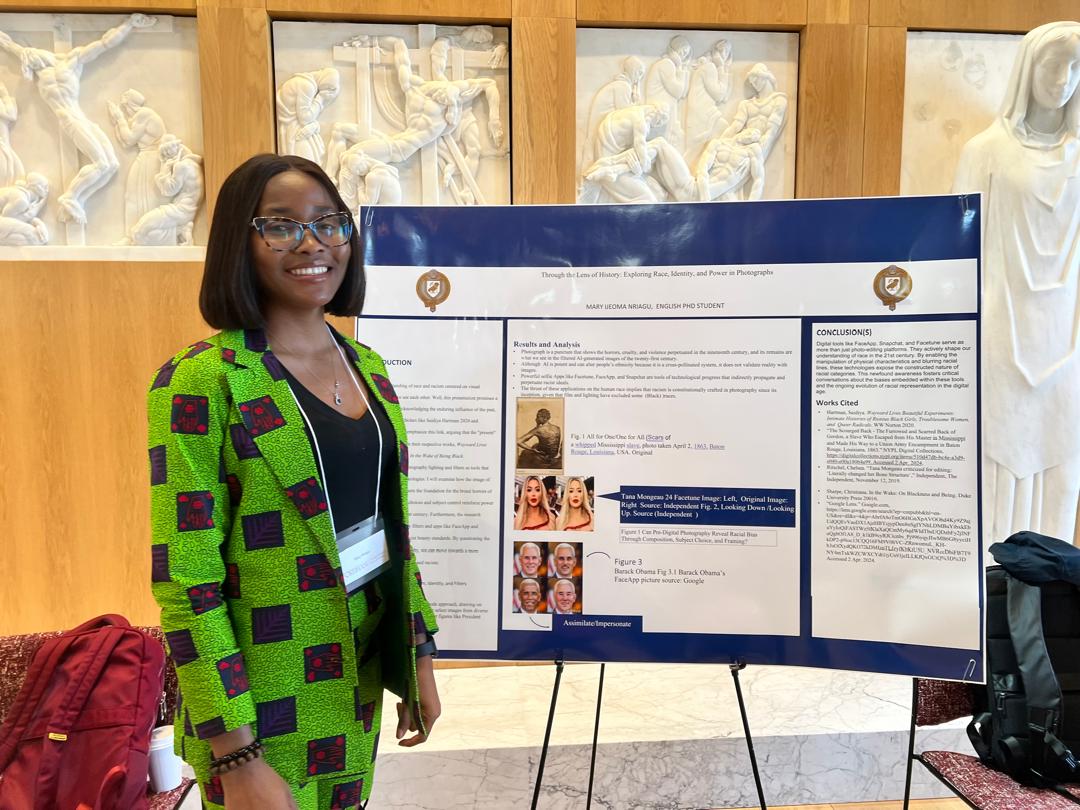
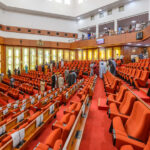

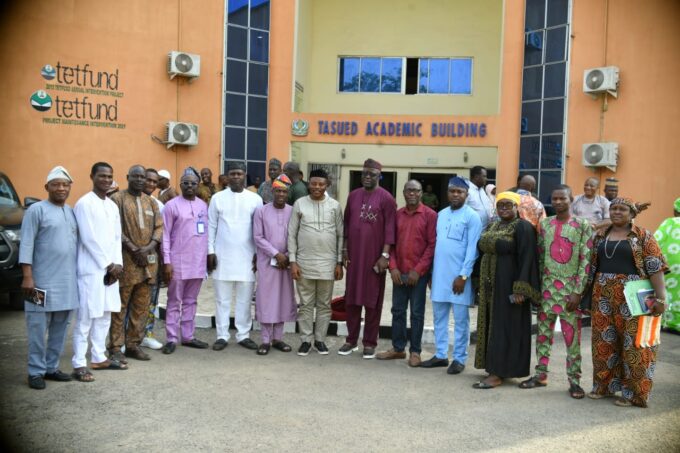


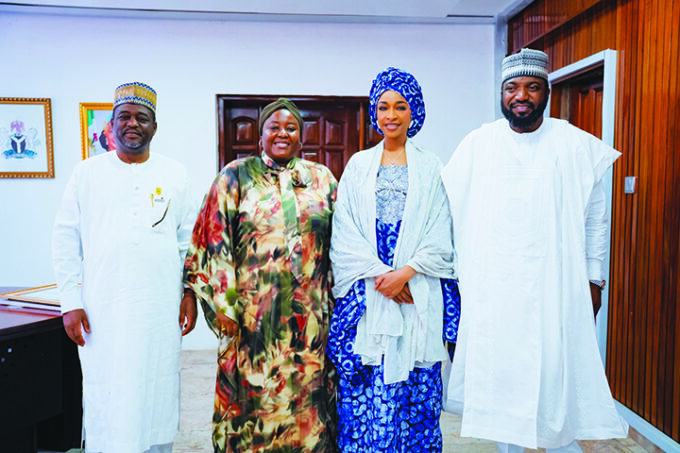

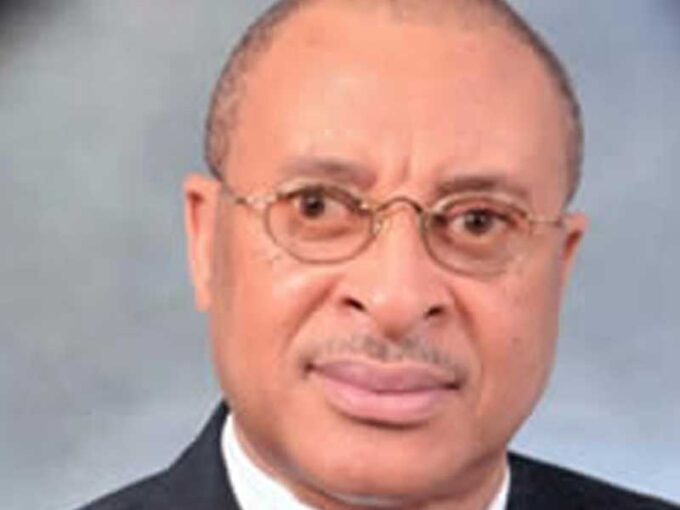



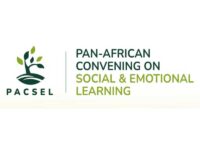

Leave a comment